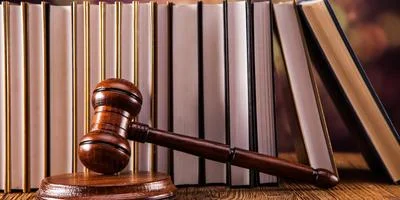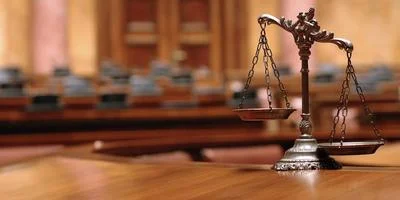U.S. Supreme Court
Recent News About U.S. Supreme Court
-
SAUL EWING ARNSTEIN & LEHR: Lizza's Helsinn case heads to U.S. Supreme Court
Saul Ewing Arnstein & Lehr Partner Charles M. Lizza, Chair of the Firm’s Intellectual Property Litigation practice, is a member of the legal team that just secured a grant of certiorari by the U.S. Supreme Court in the case of Helsinn Healthcare S.A., v. Teva Pharmaceuticals USA, Inc., et al. -
ILLINOIS POLICY INSTITUTE: John Tillman: Statement on he Janus V. AFSCME Decision
The U.S. Supreme Court issued a landmark decision in Janus v. AFSCME, confirming that forced union fees are unconstitutional. -
Jam Productions alleges theatrical union bought votes to unionize workers
A Chicago federal appeals panel has ordered the National Labor Relations Board to hold a hearing into allegations by Jam Productions that Theatrical Stage Employees Union Local 2 gave lucrative jobs to non-unionized Jam workers so they would vote to install the union local at Jam Productions venues. -
SCOTUS takes Merck's Fosamax appeal, could boost GSK's appeal of $3M verdict over lawyer's suicide
The U.S. Supreme Court has decided to wade into the contentious question over whether a pharmaceutical company can be held liable for failing to warn consumers and doctors of a drug’s potential effects, potentially portending significant implications for a $3 million verdict a jury awarded to the widow of a Chicago lawyer who committed suicide in the Loop after taking the generic version of an antidepressant drug. -
Post-Janus Landscape: Decision will impact union coffers, membership; more litigation on its way, say lawyers
In the wake of the U.S Supreme Court’s landmark decision to declare unconstitutional forced union fees, the legal and political landscape will undoubtedly change. But precisely what will change, and how and when those changes will roll out, remains anybody’s guess. -
Janus decision could give IL caregivers new shot at reclaiming $32M in unconstitutional union fees: SCOTUS
A day after overturning the legal precedent that allowed public sector unions to use the state to grab a share of non-union workers’ paychecks, the U.S. Supreme Court has ordered a federal appeals court in Chicago to use its ruling to take another look at his decision forbidding a group of home caregivers from suing a labor union to claw back some of the $32 million in similar fees the state had taken from the caregivers and paid to the union. -
US Supreme Court: Forced collection of 'fair share' union fees unconstitutional, violates workers' free speech rights
Compelling non-union government workers to pay so-called “fair share fees” to unions they do not wish to join violates the First Amendment speech rights of non-union workers and is unconstitutional, the U.S. Supreme Court has ruled, finding in favor of an Illinois state worker who had sued to end the fees, also known as agency fees, in Illinois and across the country. -
Clerk: Cook County's methods of maintaining voter rolls better than SCOTUS-approved Ohio purge
With a 5-4 vote, the U.S. Supreme Court upheld an Ohio state law allowing state election officials may remove people from the roll of eligible voters if voters skip a few elections and fail to respond to a mailed notice from state election officials, asking them to verify they still live in the place in which they claim to be registered to vote. -
Appeals court upholds NCAA rule requiring transfers to sit out one season before playing
The NCAA can require student athletes to wait at least one full academic year before playing when transferring to a new Division 1 university or college, a federal appeals court in Chicago has ruled. -
IL, other high tax states, seeking ways around deduction cap; IRS warns it decides proper deductions
In the wake of the new nationwide tax law, states, including Illinois, which are setting up workarounds to state and local tax deducation caps, have been warned by the Internal Revenue Service that federal law controls deductions. -
Attorneys: US Supreme Court's Masterpiece Cakeshop decision important win for exercise of 'sincere' religious beliefs
The U.S. Supreme Court's recent decision, granting a win to a Colorado baker accused of violating the civil rights of a gay couple by refusing to bake a custom-designed cake for their wedding, could signal that, while the courts are upholding the civil rights of same-sex couples, it does not create a legal "open season" on others - including business owners - whose religious beliefs may not allow them to walk in step with society's rapidly changing values, say two attorneys who specialize in litigating religious freedom cases. -
Nickel & Dime: eBay, online retailers warn SCOTUS could unleash lawsuit torrent vs sellers over taxes
Nickel & Dime: eBay, online retailers warn SCOTUS ruling could unleash torrent of lawsuits accusing sellers over taxes -
No quit in trial bar after SCOTUS ruling, still filing lawsuits in favorite courts
WASHINGTON (Legal Newsline) – Since last year’s U.S. Supreme Court ruling that dealt a blow to forum-shopping personal injury attorneys, companies threatened with sprawling, 50-state litigation have not been forced into defending cases all over the country. -
SCOTUS employee arbitration decision could have profound effects on employment law, costly class actions
One of the most recent decisions from the U.S. Supreme Court could have the greatest impact on employment and class action law of any case in years. -
Trial lawyer panel: Plaintiffs' lawyers adapting strategies to fit post-BristolMyersSquibb legal landscape
While the U.S. Supreme Court's Bristol Myers Squibb ruling has resulted in some big wins for businesses targeted by the plaintiffs' bar, new strategies and theories deployed by plaintiffs' lawyers may be blunting the further impact of that decision, despite high hopes from some it would largely thwart the ability of out-of-state plaintiffs to sue out-of-state defendants in a favorable court forum. -
Appeals panel: 'Jurisdiction by necessity' not enough to keep GE on asbestos lawsuit in Illinois
A state appeals panel said jurisdictional issues should have allowed General Electric to be dismissed from a personal injury complaint involving asbestos exposure. -
Recent decisions to grant standing in data breach cases reflects 'social shift' in how data is viewed
Two recent decisions in two different federal appeals courts regarding who has the right to sue over data breaches reflect a “social shift” in how “we view our data,” according to an attorney specializing in privacy law. -
Chicago housing groups: Lawsuit vs Berrios over discriminatory assessment practices more than tax dispute
Two Chicago-based housing assistance organizations have asked a Cook County judge to reject the attempt by lame duck Cook County Assessor Joseph Berrios to sidestep their discrimination lawsuit, saying their legal action over allegedly racially discriminatory property tax assessment practices is more than just a dispute over property taxes. -
Facebook: Cook County data mining lawsuit designed to benefit only county government, its hired lawyers
Saying only the county and its hired trial lawyers would stand to benefit from any settlement or judgment, Facebook has pushed back against the Cook County State’s Attorney’s attempt to send back to more friendly legal turf the pending legal fight over how much blame Facebook should shoulder for data mining conducted by another firm, ostensibly to benefit the 2016 election campaign of President Donald Trump. -
DuPage judge strikes down law requiring divorced parents to fund kids' college education
Saying the law is essentially antiquated and violates the equal protection rights of divorced parents, a DuPage County judge has found a state law requiring divorced couples to fund their children’s college education to be unconstitutional.


















